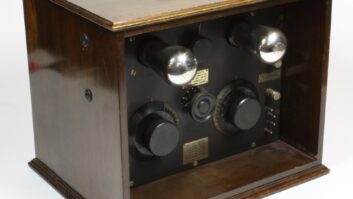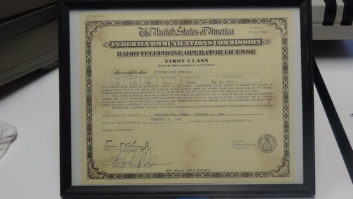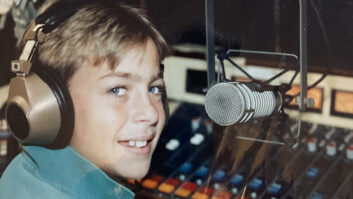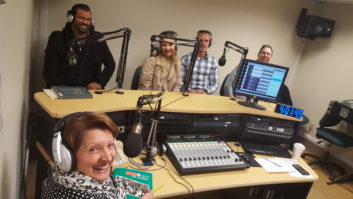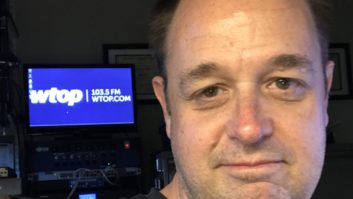It’s a fork in the road that many career radio people face: After a change in their station’s format or management, should they stay in the radio business? Or apply their skills somewhere else?
For most, radio has always been more than just a job, so the decision can be difficult.

“Radio feels like a second home, and your coworkers become family,” says Mike Sherry, a former producer at Los Angeles rock stations KLOS(FM) and “100.3 The Sound” KKLQ(FM).
When “Darla Thomas” Gerdes left radio, she immediately missed the camaraderie, along with the perks. “Not many jobs send you to concerts, fly you to showcases and let you meet celebrities.”
As a former programmer of stations in Tucson, Omaha, Seattle and Charlotte, what Gerdes doesn’t miss is the pressure. “As staffs have been cut, employees are doing twice the work, with pressure to cut costs even more and maintain ratings. That leads to burnout.”
For Gerdes, working out at a gym called “Burn Boot Camp” helped relieve the stress. “It’s for women only, empowering members to take control of their lives. We all support and encourage each other.”

She loves the concept so much that she plans to own her own franchise. “I’m in negotiations with a location in Bucks County, Pa., and hope to open early next year.”
Radio’s staff reductions can have an unexpected benefit to those left behind. “I was doing the jobs of three people,” says Sherry, “so when I began my new position, I realized just how efficient my work habits had become.” In addition to being full-time for food blog company Hungry Girl, Sherry still does some side work for radio syndicator Compass Media. For Hungry Girl, he’s the producer/co-host of a podcast called “Chew The Right Thing.”
“You could say I’m the utility in-fielder,” says Sherry, “the ‘go to guy’ when something needs to be done.”

“The startup world is the perfect place for someone who can do so many things,” according to Eric Holmes, talent manager for a new Medicare sales company in Long Beach, Calif. Prior to his current career recruiting and hiring for startups, he worked at radio stations in Columbus, New York City, Los Angeles and for consulting firm Jacobs Media.
“The hardest part of interviewing for a job outside radio was actually getting the interview,” says Kelly Hammer. After 27 years in Salt Lake City area radio, Hammer says, “It was difficult for potential employers to grasp that what we do in radio is really marketing — for our stations and our clients.”
He credits his new employer, tech startup PDQ.com, with “understanding that I would not only bring experience with audio, but I’d be doing similar work to radio. I identify a market segment, then create compelling content targeted at them.”
Holmes warns, “Radio’s job titles and jargon are useless anywhere else.”

He recommends taking some discreet liberties with your résumé. For example, “If you’re a program director who — among other things, directs a station’s marketing efforts — apply for a marketing position by saying you’re a ‘marketing director.’ You are, even if it doesn’t say that on your business card. The person who’s hiring receives hundreds of résumés and isn’t going to take the time to figure out what a radio program director does.”
Then, if you get the interview, “The coolness factor of your past career can help break the ice. People like talking about radio, but you have to steer the conversation toward how your skills are relevant to their company,” says Holmes.
Of course, there is another option. You could start your own company like Rob “Blaze” Brooks.
“I stepped out to do my own thing.” He’s proud to have discovered and nurtured so many radio talents during his decades at KRZQ and KTHX in Reno. As the founder of 4808 North Inc., he’s still identifying and hiring talent, now for entertainment venues like Eldorado Resorts, the Carson Valley Inn and others.
“Agents are lot like record people, but it’s even more competitive,” says Brooks. “Ticket sales and getting listeners, they’re similar. You have to know your market.”

Like many, after his first taste in college, Holmes thought he would always be in radio. “It’s a cool job you can brag about to your friends. But I’m glad I opened my eyes to other opportunities. After talking to so many listeners and celebs, I know I can handle any conversation, and I doubled my salary within a few years.”
“Looking back, I wish that I had had more confidence when I was in radio,” says Gerdes. “Now I know just how much my abilities translate to ‘the real world.’ You really can change your path. It’s possible. You just have to believe in yourself!”
After 9 ½ years as the creator of L.A.’s 100.3 The Sound, Dave Beasing has launched SoundThatBrands.com, the company that co-produces the popular “Inside Trader Joe’s” podcast with fellow radio veteran Steve Goldstein.






